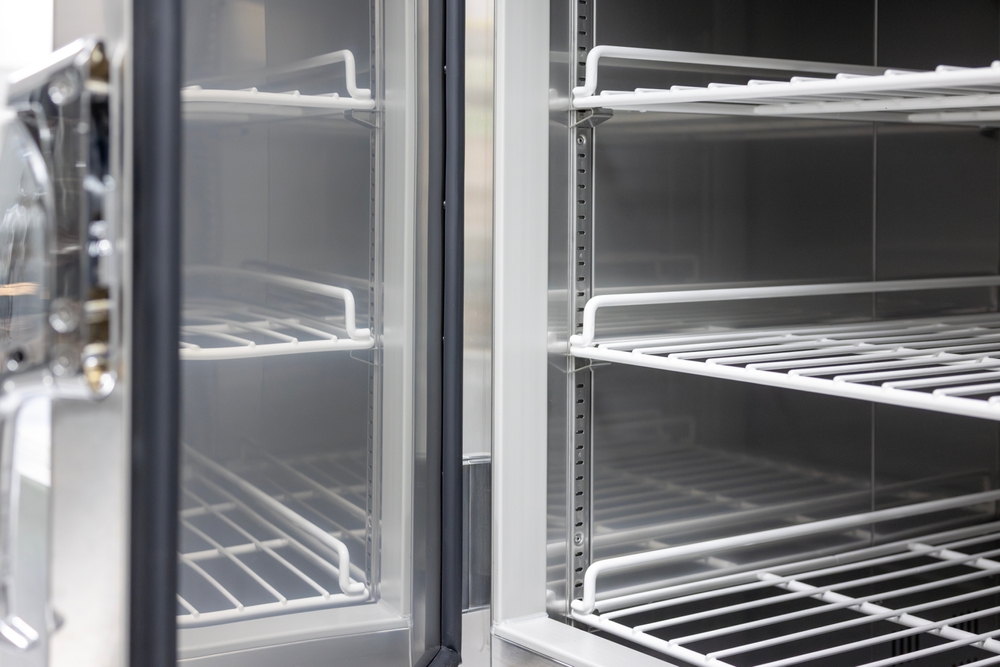
Maintaining the proper temperature in a commercial fridge or industrial refrigerator is critical for preserving food quality, ensuring safety, and complying with health regulations. This article explores the ideal temperature settings for commercial refrigerators, factors affecting temperature consistency, and tips for optimal performance.
Understanding the Importance of Proper Temperature
In the foodservice and retail industries, refrigeration plays a vital role in food preservation. The temperature of a commercial fridge must be carefully managed to:
- Prevent Foodborne Illness: Bacteria like Salmonella and E. coli thrive in the “danger zone” between 40°F (4°C) and 140°F (60°C). Proper refrigeration keeps food out of this zone.
- Ensure Compliance with Regulations: Health codes mandate specific temperature ranges to avoid penalties or closure.
- Preserve Quality: Freshness, texture, and flavor are directly influenced by how food is stored.
By understanding the ideal temperature and maintaining it, businesses can avoid food spoilage and operational inefficiencies.
The Ideal Temperature for a Commercial Fridge
The recommended temperature for commercial refrigerators is typically between 35°F (1.7°C) and 38°F (3.3°C). This range ensures food safety and quality while preventing freezing.
Why Not Go Lower?
Setting the temperature below 35°F might lead to partial freezing of perishable items such as produce and dairy, altering their texture and taste. For instance:
- Vegetables may become waterlogged.
- Milk can curdle prematurely.
Why Not Go Higher?
Temperatures above 38°F increase the risk of bacterial growth. The closer the internal temperature is to 40°F, the shorter the shelf life of stored items. This is especially true for:
- Raw meats and poultry
- Seafood
- Pre-prepared salads
Maintaining the ideal range ensures a balance between energy efficiency and food safety.
Factors That Affect Temperature Consistency
Even with the best commercial or industrial refrigerator, temperature fluctuations can occur. Here are the primary factors influencing temperature stability:
Door Usage
Frequent opening and closing of refrigerator doors can lead to temperature spikes. To mitigate this:
- Train staff to minimize door usage.
- Use self-closing doors or strip curtains.
Stocking Practices
Overstocking can block air vents and prevent even cooling. Conversely, understocking may lead to overcooling and energy waste. Always:
- Allow for proper air circulation.
- Avoid blocking fan vents.
Ambient Temperature
External environmental factors, such as the temperature of the kitchen or storage area, can influence a fridge’s internal conditions. Ensure the refrigerator is placed in a well-ventilated area away from heat sources like ovens and grills.
Equipment Maintenance
Dirty condenser coils, worn-out door gaskets, or malfunctioning thermostats can compromise performance. Schedule regular maintenance to:
- Clean components.
- Inspect for wear and tear.
Special Considerations for Industrial Refrigerators
Industrial refrigerators, used in large-scale operations like warehouses or food manufacturing plants, often require more precise temperature control. While the general range of 35°F to 38°F applies, certain scenarios may demand stricter management:
Storing Specific Items
- Seafood: Should be kept near 32°F to maintain freshness.
- Frozen Products: Separate freezer units should maintain temperatures at 0°F (-18°C) or below.
Large Volumes
With larger inventory volumes, industrial refrigerators must maintain consistent cooling across all sections. This often requires advanced airflow systems and multiple temperature zones.
Monitoring and Managing Temperatures
Ensuring that your commercial fridge or industrial refrigerator maintains the ideal temperature involves proactive monitoring and management. Here’s how to do it:
Use Thermometers
Install high-quality, calibrated thermometers in multiple areas of the fridge. These provide real-time readings and help identify potential issues early.
Implement Temperature Logs
Keep a daily record of temperature readings to ensure compliance with health regulations. Automated logging systems can streamline this process.
Alarm Systems
Many modern commercial refrigerators come equipped with alarms that alert staff if temperatures deviate from the set range. This feature is invaluable for preventing spoilage.
Energy Efficiency and Cost Considerations
Maintaining the ideal temperature not only ensures food safety but also impacts energy consumption. Here are some tips to enhance efficiency:
- Upgrade to Energy-Efficient Models: Look for units with ENERGY STAR ratings.
- Regular Maintenance: Clean condenser coils and check door seals to prevent energy loss.
- Set Optimal Temperatures: Avoid setting temperatures lower than necessary, as this increases energy usage without added benefits.
Common Mistakes to Avoid
To maximize the performance of your commercial fridge or industrial refrigerator, steer clear of these common errors:
- Overloading: Overcrowding reduces airflow and cooling efficiency.
- Neglecting Maintenance: Skipping routine checks leads to equipment failure and higher costs.
- Ignoring Alarms: Promptly address any temperature alarms to prevent losses.
- Improper Placement: Avoid placing the refrigerator near heat-emitting appliances.
Conclusion
The ideal temperature for a commercial fridge is between 35°F and 38°F. Maintaining this range is essential for food safety, quality, and regulatory compliance. By understanding the factors that influence temperature and implementing best practices, businesses can optimize the performance of their refrigeration units, reduce energy costs, and ensure customer satisfaction.
Whether you’re operating a small cafe or managing a large-scale food production facility, the principles of proper refrigeration remain the same. Invest in quality equipment, prioritize maintenance, and train your team to adhere to temperature guidelines for the best results.
Need a Commercial HVAC Contractor in St. Louis Park, MN?
Locally owned and operated since 1991, Air Climate Control Inc specializes in commercial service and repair of air conditioning, heating, and refrigeration, serving Minneapolis and the surrounding areas with quality, prompt, and reliable work. Air Climate Control Inc strives to provide same-day service to ensure client comfort and satisfaction. We specialize in preventative maintenance plans as well as repair and can sub-contract for installation service. Our estimates are always FREE of charge. Call us TODAY for all of your commercial refrigeration, air conditioning, and heating needs!
